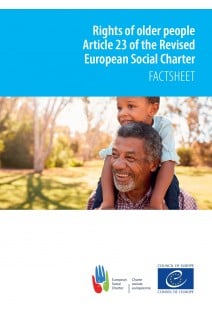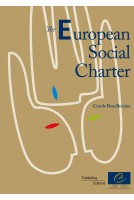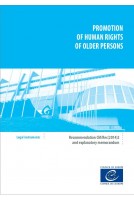The European Social Charter, adopted in 1961 and revised in 1996, is the counterpart of the European Convention on Human Rights in the field of economic and social rights. It guarantees a broad range of human rights related to employment, housing, health, education, social protection and welfare. The Charter is seen as the Social Constitution of Europe and represents an essential component of the continent’s human rights architecture.
Article 23 of the Charter requires States Parties to undertake to adopt or encourage, either directly or in co-operation with public or private organisations, appropriate measures designed in particular to enable older persons to remain full members of society. The expression “full members of society” used in Article 23 requires that older persons must suffer no ostracism on account of their age. The right to take part in society’s various fields of activity should be ensured to everyone active or retired, living in an institution or not.









